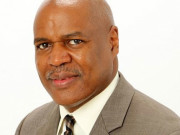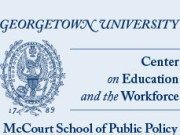According to the most recent statistics released by the Centers for Disease Control and Prevention (CDC), approximately one in three children in the United States are overweight or obese. This is a drastic increase of 60% since 1990.
So what’s to blame? Due to the intersection of economic, environmental, and social factors, it’s hard to pinpoint one concrete cause for the sharp increase in childhood obesity and health risks for children. For many experts, however, the answer to better childhood health points to home and the family.
Direct evidence of this can be seen cross culturally, when looking to our Eastern counterparts. A recent article on USATODAY.com, for example, outlined Japan’s reputation for having the healthiest children.In the article, the family is emphasized greatly, as it encourages parents to “be your child’s lifestyle authority,” meaning that parents should set an example for healthy eating and lifestyles at an early age by modeling good habits instead of simply dictating them. And children in America need this greatly, considering 40% of all calories for children ages two through 18 consists of empty calories from added sugars and fats.
But for American families struggling to make ends meet, this can be a difficult task. With a 40 hour plus work week, daily responsibilities and the like, getting in the time to be active and healthy with your family seems like extra work.
Recently, the government has been making great strides in trying to get families to engage in healthy lifestyles as a unit. For example, First Lady Michelle Obama spearheaded the “Let’s Move” campaign in 2015, encouraging children and parents alike to engage in physical activity and healthy eating as a family unit.
Even more recently, a new bill was introduced to Washington D.C.’s city council, advocating to give working parents in DC the option of taking up to 16 weeks of paid parental leave; and it doesn’t just extend to maternity leave. Rather, the paid parental leave would account for family emergencies, the adoption of a new child, and other significant life events.
And while this bill benefits all DC workers, it is designed specifically to help individuals who make under $1,000 a week, as they will be reimbursed up to $1,000 per week of their paycheck.
For those who make over $1,000 a week, they will receive 50% of their average weekly pay, as it is assumed that their higher paying job already offers paid leave benefits.
If passed, this bill could effectively allow for families to stay close and engage in healthy lifestyles together when it matters most, and it could effectively serve as a model for other cities across America.
























